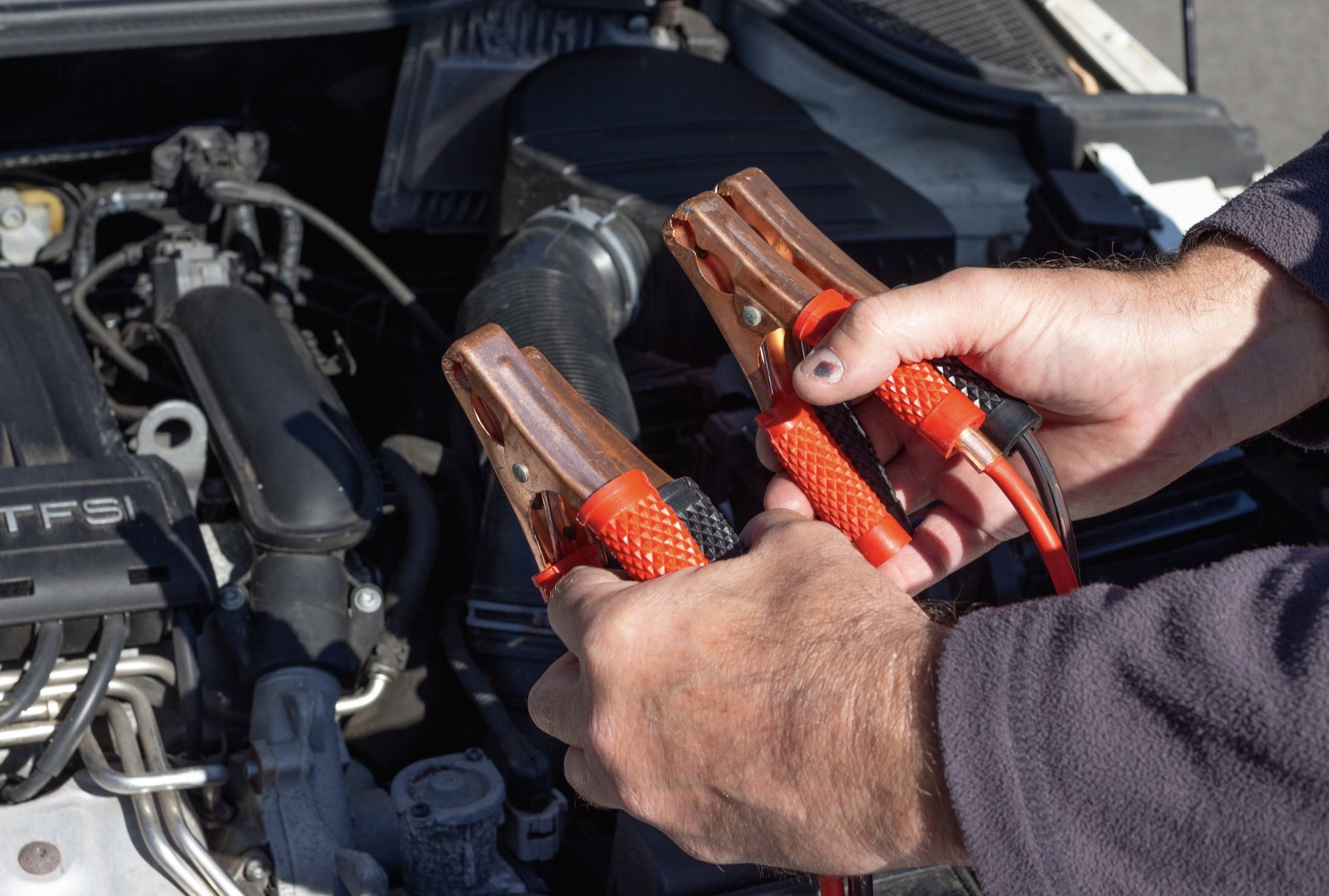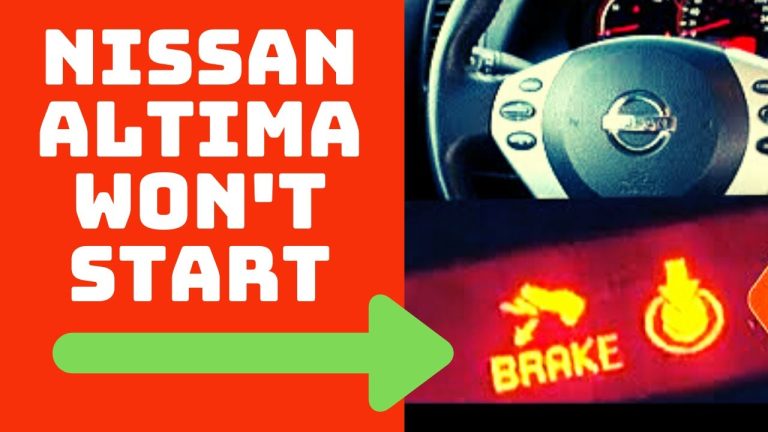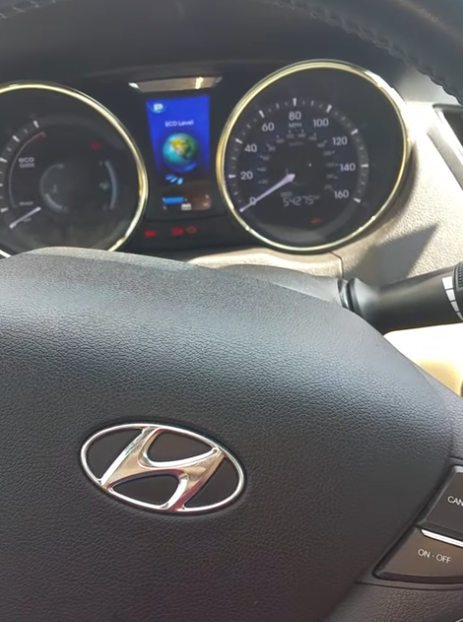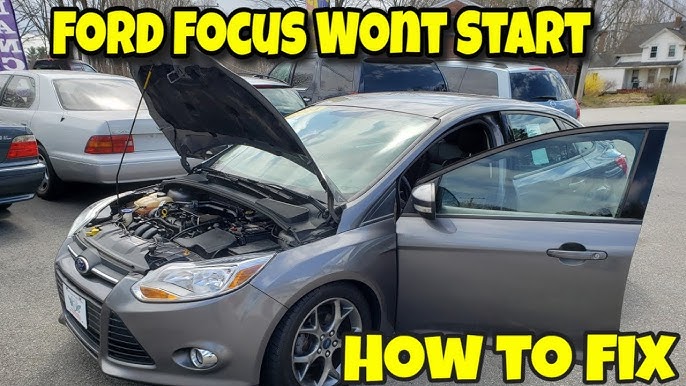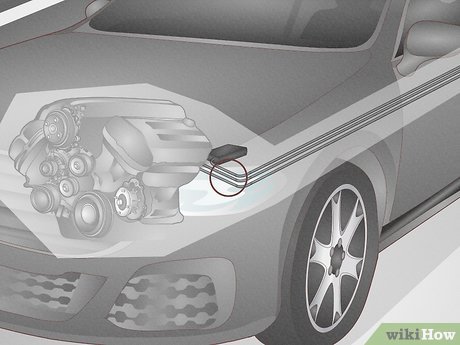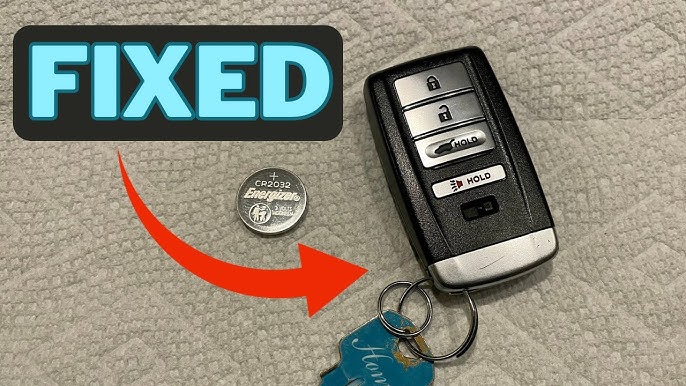Car Won’t Start Without a Jump: Troubleshoot Tips
If your car won’t start without a jump, the battery is likely dead or weak. Common causes include a bad battery, faulty alternator, corroded terminals, or parasitic drain. Have the battery and charging system tested to identify the exact issue and replace faulty components if necessary.
Nothing. Your car won’t start without a jump, leaving you frustrated and stranded. We’ve all been there, and it’s never a pleasant experience. But what if you could understand why this happens and prevent it from ruining your plans? We’re going to delve into the common reasons your car might need a jumpstart and how you can tackle these issues head-on.
We’ll explore practical tips and insights that could save you time, money, and a lot of stress. So, whether you’re a seasoned driver or new to the world of cars, stick around and discover how to keep your car running smoothly.
Car Won’t Start Without a Jump
Common Causes For Car Starting Issues
| Possible Cause | Symptoms | Solution |
|---|---|---|
| Faulty Starter Motor | Clicking sound but engine won’t crank | Replace or repair the starter motor |
| Bad Ignition Switch | Dashboard lights on, no crank | Replace the ignition switch |
| Key Fob Battery Dead | No response with push start or remote key | Replace key fob battery |
| Blown Fuse or Relay | Certain functions not working | Check and replace faulty fuses/relays |
| Bad Neutral Safety Switch | Won’t start in Park or Neutral | Test and replace if needed |
| Clogged Fuel Filter | Cranks but doesn’t start | Replace fuel filter |
| Faulty Fuel Pump | Engine cranks, no fuel delivery sound | Test and replace fuel pump |
| Corroded or Loose Battery Terminals | Power to accessories but weak crank | Clean and tighten battery terminals |
| Faulty Engine Ground Connection | Lights on but weak or no crank | Inspect and fix ground connections |
| ECM/PCM Issues | Unusual error codes, random failures | Diagnose with scanner, reprogram or replace |
Car starting issues are frustrating and inconvenient. Identifying common causes can help you troubleshoot effectively. Understanding these reasons saves time and ensures your car runs smoothly.
1. Dead Battery
A dead battery often prevents cars from starting. Batteries lose charge over time or due to cold weather. Frequent short trips can also lead to battery drain.
2. Faulty Starter Motor
A faulty starter motor causes starting problems. This essential component wears out with age. If you hear a clicking sound, the starter might be failing.
3. Ignition Switch Problems
The ignition switch is crucial for starting the engine. Wear and tear can disrupt its function. If the dashboard lights flicker, it may indicate a faulty switch.
4. Fuel System Issues
The fuel system supplies the engine with necessary fuel. Clogged fuel filters or a failing fuel pump can prevent starting. Regular maintenance helps avoid these problems.
5. Alternator Malfunction
The alternator charges the battery while driving. If it fails, the battery won’t recharge. Dim headlights and electrical issues signal alternator problems.
6. Corroded Battery Terminals
Corrosion on battery terminals hinders electrical flow. This buildup blocks power needed for starting. Regular cleaning of terminals ensures efficient operation.
7. Engine Control Module Issues
The engine control module manages engine functions. Faulty modules disrupt operations and prevent starting. A diagnostic check can confirm module issues.
Understanding these common causes allows for proactive maintenance. This ensures your car starts reliably and avoids unwelcome surprises.

Credit: www.reddit.com
Battery Problems And Solutions
Car won’t start without a jump? This issue often signals battery problems. Understanding these problems and their solutions can save time and frustration. Regular maintenance and awareness of battery health help prevent unexpected failures.
Battery Corrosion: A Silent Culprit
Corrosion on battery terminals disrupts the electrical flow. It can prevent the car from starting. Regularly clean terminals with a baking soda solution. This helps maintain a clear connection. Always use protective gloves when handling the battery.
Old Battery: Time For Replacement
Batteries wear out over time. A typical car battery lasts 3 to 5 years. If your battery is older, consider replacing it. Check the manufacture date for guidance. A fresh battery can restore reliable starting.
Parasitic Drain: Unseen Power Loss
Electrical components can drain the battery when the car is off. Faulty wiring or accessories might be the cause. Use a multimeter to check for power loss. Fixing these issues can prevent future battery drains.
Extreme Temperatures: Weather Woes
Cold weather slows chemical reactions in batteries. This reduces their ability to start the car. In hot climates, battery fluid can evaporate. Both extremes shorten battery life. Parking in a garage can help mitigate temperature effects.
Poor Connections: Simple Fixes
Loose or dirty connections affect battery performance. Ensure all cables are tight and clean. Regular inspection of connections can prevent many problems. This simple step keeps your battery running smoothly.
Starter Motor And Ignition System
The starter motor and ignition system play vital roles in starting a car. These components work together to initiate the engine’s operation. When a car doesn’t start, understanding these systems can help diagnose issues.
Starter Motor Function
The starter motor is an electric device. It turns the engine over to start it. It engages with the engine’s flywheel. This creates the initial motion needed for the engine to run.
Signs Of Starter Motor Issues
A car that won’t start may have a faulty starter motor. Listen for a clicking sound when turning the key. This sound often indicates a problem with the starter motor.
Ignition System Role
The ignition system is crucial for engine operation. It ignites the fuel-air mixture in the engine’s cylinders. This process creates the energy needed for the engine to run.
Common Ignition System Problems
Ignition system issues can prevent a car from starting. Check for a weak or dead battery. A dead battery can affect the ignition system’s performance.
Diagnosing Starter Motor And Ignition Issues
Identify problems using simple checks. Test the battery voltage. Inspect wires and connections for damage or corrosion.

Credit: www.youtube.com
Fuel System Blockages
Car not starting without a jump can be due to fuel system blockages. These blockages prevent fuel from reaching the engine, causing starting issues. Regular maintenance can help avoid these problems, ensuring smooth engine operation.
If your car refuses to start without a jump, it’s not just a minor inconvenience—it’s a warning sign. One of the potential culprits could be blockages in the fuel system. Blockages disrupt the flow of fuel, starving your engine of the power it needs. This issue can be sneaky, often overshadowed by more obvious electrical problems.
Understanding Fuel System Blockages
Fuel system blockages can arise from various causes. Imagine trying to drink through a straw with a piece of food stuck in it. That’s what your car’s engine feels when there’s a blockage. Debris, sediment, or even rust particles can clog fuel filters or lines, hindering the smooth flow of fuel.
Common Culprits Behind Blockages
One of the main offenders is dirty fuel. Have you ever filled up at a less-than-reputable gas station? Poor quality fuel can introduce contaminants into the system. These particles accumulate over time, eventually causing blockages. Another issue could be a deteriorating fuel filter. Filters are designed to catch impurities, but once clogged, they can become barriers themselves.
Signs Your Fuel System Might Be Blocked
Is your car struggling to start despite a full tank? Does it stall frequently or have a rough idle? These symptoms might point to a blocked fuel system. Imagine trying to run a marathon while breathing through a straw. Your engine feels similarly constrained with a blockage. It’s like it’s gasping for the fuel it desperately needs.
Preventing Fuel System Blockages
Regular maintenance can save you from this headache. Make sure to replace fuel filters according to your car’s manual. Consider using fuel additives occasionally—they can help keep your system clean. Always opt for reputable gas stations, even if they’re a bit pricier. Would you rather save a few cents per gallon or avoid a costly repair?
Diy Checks And Professional Help
You can perform basic checks yourself. Inspect the fuel filter and lines for visible damage or debris. However, if you’re unsure, seeking professional help is wise. Mechanics have the tools and expertise to diagnose and fix blockages. When was the last time you had a professional inspect your fuel system?
By understanding and addressing fuel system blockages, you can ensure your car remains reliable. Keep your vehicle running smoothly and avoid those frustrating mornings when your car just won’t start.
Electrical Connections And Wiring
Car won’t start without a jump? Check the electrical connections and wiring. Loose or corroded connections can cause starting issues. Inspect and clean battery terminals. Ensure cables are secure. Regular maintenance helps prevent surprises. Keep your car running smoothly.
When your car won’t start without a jump, the issue often lies in the electrical connections and wiring. These components are the veins of your vehicle, delivering the essential power that it needs to start and run smoothly. Understanding how they function can be the key to diagnosing and fixing the problem. If you’ve ever been stuck with a dead car battery in a parking lot, you know the frustration. This knowledge not only empowers you to handle the situation but also prevents future headaches.
Understanding Battery Connections
The battery is the heart of your car’s electrical system. Check its terminals. Ensure they are clean and tightly connected. Corrosion on battery terminals can disrupt the flow of electricity.
A simple cleaning with a mixture of baking soda and water can sometimes solve the problem. Always disconnect the negative terminal first to avoid short circuits.
The Role Of The Alternator
The alternator charges your battery while the car is running. If your car stalls frequently, a faulty alternator might be the culprit.
Listen for unusual sounds like squealing, which can indicate a problem. Have you noticed your car lights dimming? This might point to alternator issues.
Examining The Wiring System
Wiring connects all electrical components. Damaged or frayed wires can cause intermittent starting problems. Inspect the wiring for any visible damage or loose connections.
Use a multimeter to check for continuity issues. Fixing a loose wire might be as simple as reconnecting a plug.
Importance Of Ground Connections
Ground connections complete the electrical circuit in your vehicle. A poor ground can cause all sorts of electrical gremlins.
Ensure that the ground wire from the battery is securely attached to the car’s body. Clean the contact points to ensure a good connection.
Fuse Check And Replacement
Fuses protect your car’s electrical system. A blown fuse can prevent your car from starting. Locate the fuse box and check for any fuses that appear broken or burnt.
Replacing a fuse is a quick fix, but always use the correct amperage. A simple switch can restore power instantly.
When To Seek Professional Help
Sometimes, the issue might be beyond a DIY fix. If your efforts don’t solve the problem, it’s time to consult a professional.
Persistent electrical issues can indicate a deeper problem. Consider a mechanic if you’re unsure about complex electrical systems.
Could your car’s electrical problem be a sign of something more serious? Don’t hesitate to ask for help if needed. Understanding your car’s electrical connections and wiring is essential for maintaining its reliability and performance. Taking proactive steps can save you from unexpected breakdowns and ensure peace of mind on the road.
Read More: Why Your Mercedes Won t Start but Lights Turn On: Expert Diagnosis and Solutions

Credit: www.reddit.com
Frequently Asked Questions
Why Is My Car Not Starting Without A Jump?
Your car may not start without a jump due to a weak or dead battery. Check for loose or corroded connections. Inspect the alternator and starter for faults. Ensure electrical components are switched off when parked to prevent battery drain.
Regular maintenance can help avoid starting issues.
How Do I Know If It’s My Starter Or Alternator?
Check if the engine cranks but doesn’t start; this often indicates a starter issue. Dim lights or a dead battery suggest an alternator problem. Use a multimeter to test the battery voltage. If it’s low, the alternator might be faulty.
Consult a mechanic for accurate diagnosis.
Why Do I Have To Keep Jumping My Car For It To Start?
A car needing frequent jumps likely has a failing battery or faulty alternator. Check for corroded cables or loose connections. Visit a mechanic for a thorough diagnosis to prevent potential damage. Regular maintenance ensures reliability and extends your vehicle’s lifespan.
Can A Car Battery Be So Dead It Won’t Jump?
Yes, a car battery can be too dead to jump-start. Extreme discharge damages internal components, preventing it from holding a charge. If the battery’s voltage is too low or it has a short circuit, jump-starting won’t work. Regular maintenance and timely replacement help avoid such issues.
Why Does My Car Need A Jump Start?
A drained battery is the common reason. Other causes include faulty alternator, corroded connections, or temperature effects.
Read More: My Car Shuts off While Driving But Starts Back Up: Solve Now
Conclusion
Solving a car that won’t start can be frustrating. Understanding the cause is key. Check the battery first. A weak battery often needs a jump. Inspect connections for dirt or corrosion. Clean them if necessary. Consider other potential issues too.
Like the alternator or starter. Regular maintenance helps prevent these problems. Keep a jumper cable in the trunk. It’s handy in emergencies. Consult a mechanic if problems persist. Their expertise can offer a solution. Stay proactive with car care. It ensures reliable performance.
Peace of mind on the road.

